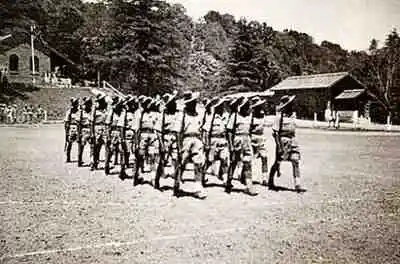World War 2 remains one of the most significant and devastating conflicts in human history. Spanning from 1939 to 1945, this global war reshaped nations, redrew borders, and led to the emergence of new superpowers. In this blog, we’ll explore the history of World War 2, its causes, major events, and answer the question:Who won World War 2?
—
What Caused World War 2?
The causes of World War 2 can be traced back to the aftermath of World War 1. The Treaty of Versailles (1919) placed heavy economic and territorial burdens on Germany, creating widespread resentment and a desire for revenge. Here are the key factors that led to the outbreak of World War 2:
1. Treaty of Versailles
The treaty held Germany solely responsible for World War 1 and imposed severe reparations. This left Germany economically crippled and politically unstable, laying fertile ground for extremist ideologies.
2. Rise of Adolf Hitler and the Nazi Party
In the early 1930s, Adolf Hitler rose to power, promising to restore Germany’s former glory. He rejected the Treaty of Versailles, rearmed the country, and pursued aggressive territorial expansion.
3. Expansionist Policies of Axis Powers
Germany wasn’t alone. Italy under Benito Mussolini and Japan under its military leadership also pursued expansion. Japan invaded Manchuria in 1931 and China in 1937. Italy invaded Ethiopia in 1935.
4. Policy of Appeasement
Western democracies like Britain and France, traumatized by World War 1, initially followed a policy of appeasement—allowing Hitler to annex Austria and the Sudetenland in hopes of avoiding another war.
—
World War 2 Timeline: Key Events
The World War 2 timeline is filled with critical battles, turning points, and geopolitical shifts. Here’s a summary of the most important events:
1939 – War Begins
September 1, 1939: Germany invades Poland.
September 3, 1939: Britain and France declare war on Germany.
1940 – Fall of France
Germany rapidly defeats France using the Blitzkrieg (lightning war) strategy.Britain stands alone against Nazi Germany.
1941 – Widening of the War
June 22, 1941: Germany invades the Soviet Union (Operation Barbarossa).
December 7, 1941: Japan attacks Pearl Harbor. The U.S. enters the war.
1942–1943 – Turning Points
Battle of Stalingrad: Soviet forces halt and then repel the German advance.
Battle of Midway: A decisive U.S. naval victory over Japan.
1944 – Allied Invasion
June 6, 1944 (D-Day): Allied forces land in Normandy, France, beginning the liberation of Western Europe.
1945 – The End of World War 2
April 30, 1945: Hitler commits suicide.
May 8, 1945: Germany surrenders (V-E Day).
August 6 & 9, 1945: U.S. drops atomic bombs on Hiroshima and Nagasaki.
September 2, 1945: Japan surrenders (V-J Day).
—
Who Won World War 2?
The Allied Powers—primarily the United States, the United Kingdom, the Soviet Union, France, and China—emerged victorious. Their victory ended the fascist regimes of Nazi Germany, Imperial Japan, and Fascist Italy.
The war resulted in over 70 million deaths, massive destruction, and the start of the Cold War between the U.S. and the Soviet Union. The United Nations was established in 1945 to prevent future global conflicts.
—
Lasting Impact of World War 2
World War 2 reshaped the modern world in several ways:
Division of Germany into East and West, leading to the Berlin Wall and the Cold War.
Decolonization in Asia and Africa as European powers weakened.
The rise of the U.S. and USSR as global superpowers.
The formation of Israel in 1948, partly due to the Holocaust.
A renewed global commitment to human rights, leading to the Universal Declaration of Human Rights in 1948.
—
World War 2 in Popular Culture
The legacy of World War 2 lives on in film, literature, and documentaries. Many World War 2 movies like Saving Private Ryan, Schindler’s List, The Pianist, and Dunkirk capture the heroism, tragedy, and human cost of the war. These films play a crucial role in keeping the memory of the war alive for future generations.
—
Conclusion
The history of World War 2 is a reminder of how political instability, unchecked aggression, and global apathy can lead to devastating conflict. Understanding its causes, events, and consequences is essential not just for historians but for everyone committed to peace.
If you’ve ever wondered who won World War 2, the answer lies not only in military victories but in the lessons learned and the international cooperation it inspired afterward.


